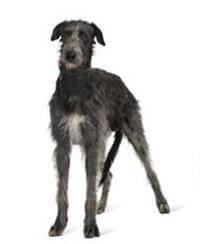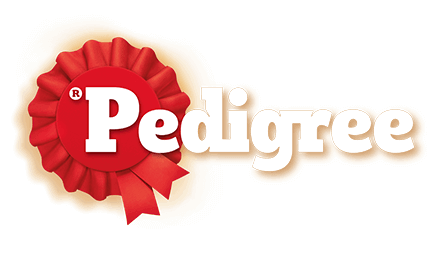Find products that match your dog’s needs

Irish Wolfhounds are known to be one of the largest dogs in the world! While they stand tall and can come off as intimidating to many, these dogs are one of the most peaceful and quiet dogs you will ever come across. They are sensitive and calm, and that’s not all. These doggos also love to be around their caregivers. Hence, it is needless to say that Irish Wolfhounds make terrific family dogs and will look after kids and the elderly in your house.
These dogs are extremely loyal and protect their family with all their might. They are also the happiest when they are around their caregivers. So, if you are looking for a dog that loves spending time with you and your family, this breed is perfect for you.
Here are some Irish Wolfhound characteristics that every caregiver should be aware of before bringing one home:
Weight | 47 to 55 kg |
Height | 30 to 32 inches |
Lifespan | 6 to 8 years |
Coat | Double coat |
Originally bred to hunt down elks and wolves, this extra-large breed is famous for its build and coarse, textured coat. Irish Wolfhounds have double coats which can be found in different colours such as:
If you ever come across a true white-coloured Irish Wolfhound, you have been blessed to witness the rarest and most unique coat colour found on this breed.
Irish Wolfhounds are sometimes mistaken for Scottish Deerhounds because of their wiry coat and large size. If you are trying to identify a purebred Irish hound, look out for these physical characteristics:
Yes, these hounds were bred to hunt down cunning creatures like wolves and elks, and while you may think that their reputation precedes them, it is quite the opposite. These hounds may be extra large in size but they are not aggressive or harmful. In fact, they are the calmest dogs you will come across in your life.
The Irish Wolfhound dog breed is very fond of walking outdoors and enjoys their caregiver’s company the most. These dogs are known to be extremely affectionate and patient, especially around children. However, it is important to note that these dogs need to be socialised at a very young age, so they are comfortable around strangers and other pets.
Since Irish hounds love children, it is only normal for them to be around children and spend time with them. Given their enormous physique, height, and weight, they may unintentionally knock children over while passing by. As a caregiver, you must know that it is not their intention to hurt children and their build and frame are to be blamed for such mishaps.
Yes, training plays a crucial role in the upbringing and development of an Irish Wolfhound. Early training, obedience training, and socialisation are essential for their growth and both physical and mental stimulation.
Through early training, pet parents can ensure that their Irish Wolfhound pup is learning good behaviour patterns and knows how to respond to commands effectively. When you start training your dogs at a young age, no matter what breed, you are trying to build a strong behavioural foundation that will benefit you and your dog well in the long run.
Obedience training is necessary for Irish Wolfhounds. Socialisation should start early for these hounds so that they understand how to follow commands. Teach them basic commands such as “sit”, “stay”, “go”, and more on a leash (in case the hound is difficult for you to handle because of its mighty build). However, as a dog parent, you must use positive training methods and be patient. Make use of your furry friend’s favourite dog treats every time it follows your commands.
Here’s everything you need to know about caring for your Irish Wolfhound:
Irish Wolfhounds are generally healthy dogs, but their breed is vulnerable to some diseases. These diseases include bloat, cancer, different cardiac diseases, eye issues, pneumonia, liver shunt, and elbow and hip dysplasia. Out of all these diseases, bloat happens to be an extremely fatal condition that needs to be diagnosed in the early stages. Pet parents must educate themselves about this condition and should learn how to identify early signs and symptoms.
Unlike other breeds, Irish Wolfhounds do not shed more than usual during certain seasons, but their double coats shed a moderate amount of fur all year round. Brushing your Irish hound once a week will help you remove any loose fur and dirt. You do not need to keep bathing it often, but once a month is highly recommended. Of course, bathe your hound more often if it plays outside a lot. When bathing them, make sure you use a large space so that they feel comfortable.
Every time you brush your Irish Wolfhound, check its ears and nails. If you hear your hound's nails against the floor, it's time for a trim. During ear checks, make sure that the colour of its ear canals is pale pink and look for any movement (mites), especially if you take your hound outdoors often. If you have any concerns or notice any abnormalities, reach out to your vet.
Take your Irish Wolfhound out for at least an hour to exercise. You can take it for jogs, walks, and even play games like fetch with it. This dog breed loves to spend time with their caregivers and these activities are perfect for their mental stimulation too. Any high-impact activities should be avoided because of their size and potential bone issues. You can also take your hound for swimming sessions.
Make sure your hound is in an enclosed or fenced area so that they can stretch around. Fencing is also important since these dogs have a high prey drive that can kick in at any time. Once these dogs get used to movement, they are quite docile at home and are also observed to be couch potatoes.
The Irish Wolfhound dog breed is a larger than large-sized breed and needs a lot of food! Make sure that there’s plenty of freshwater around your hound and you feed it at least two meals a day. Choose dog food that is specially formulated for large-breed dogs so you can meet its nutritional needs. Consult your vet to know the exact amount to feed your hound. Be mindful of extra food because this large breed cannot sustain extra weight on its joints. Say no to any activity right before or after meals to avoid any chances of developing bloat and feed it in small bites so everything is digested effectively.
This ancient breed has numerous myths and legends attached to its name. Irish Wolfhounds were famous amongst nobility and were often given as gifts between kingdoms. In Ireland, these beasts gained popularity among chieftains and were chosen to hunt large game. These hounds were so efficient at their job that they were not required by the 1700s, having rid the land of any big game animals. Later, in 1862, a British army captain grew fond of this breed and decided to reinvigorate it. He bred the Irish hound with the Tibetan Mastiff, Borzoi, Great Dane, and the Glengarry Deerhound. The Irish Wolfhound dog breed that we know in the present is the result of this effort.
Yes, Irish Wolfhounds can get along with other pets provided they are socialised with other animals at an early age! These hounds can also co-exist around cats.
Irish Wolfhounds make great family dogs because of their loving nature and protective instincts. While they are sweet and loyal, they can also turn the tables when it comes to protecting their families.
Irish Wolfhounds may not be able to cope with being left alone. If you wish to leave your hound alone every now and then, teach it that it's okay to be alone!
Irish Wolfhounds shed moderately throughout the year and are not so difficult to groom. Brush its fur once every week, brush its teeth often, and perform weekly checks when it comes to nails and ears.
Irish Wolfhounds do not bark much because of their silent nature. If you notice them barking, they have probably found something out of the ordinary.

Find a PEDIGREE® stockist
near you!
Buy online
Click to buy from any of the retailers below

